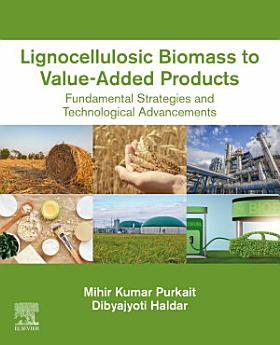Lignocellulosic Biomass to Value-Added Products: Fundamental Strategies and Technological Advancements
Jun 2021 · Elsevier
Ebook
240
Pages
family_home
Eligible
info
reportRatings and reviews aren’t verified Learn More
About this ebook
Lignocellulosic Biomass to Value-Added Products: Fundamental Strategies and Technological Advancements focuses on fundamental and advanced topics surrounding technologies for the conversion process of lignocellulosic biomass. Each and every concept related to the utilization of biomass in the process of conversion is elaborately explained, with importance given to minute details. Advanced level technologies involved in the conversion of biomass into biofuels, like bioethanol and biobutanol, are addressed, along with the process of pyrolysis. Readers of this book will become fully acquainted with the field of lignocellulosic conversion, from its basics to current research accomplishments. The uniqueness of the book lies in the fact that it covers each and every topic related to biomass and its conversion into value-added products. Technologies involved in the major areas of pretreatment, hydrolysis and fermentation are explained precisely. Additional emphasis is given to the analytical part, especially the established protocols for rapid and accurate quantification of total sugars obtained from lignocellulosic biomass. - Includes chapters arranged in a flow-through manner - Discusses mechanistic insights in different phenomena using colorful figures for quick understanding - Provides the most up-to-date information on all aspects of the conversion of individual components of lignocellulosic biomass
About the author
Dr. Mihir Kumar Purkait is a Professor in the Department of Chemical Engineering at the Indian Institute of Technology Guwahati, Assam, India. His current research activities are focused in four distinct areas viz. i) advanced separation technologies, ii) waste to energy, iii) smart materials for various applications, and iv) process intensification. In each of the area, his goal is to synthesis stimuli responsive materials and to develop a more fundamental understanding of the factors governing the performance of the chemical and biochemical processes. He has more than 20 years of experience in academics and research and published more than 300 papers in different reputed journals (Citation: >16,500, h-index = 75, i-10 index = 193). He has 12 patents and completed 43 sponsored and consultancy projects from various funding agencies.Dr. Dibyajyoti Haldar is an Assistant Professor in the Division of Biotechnology at Karunya Institute of Technology and Sciences (Deemed to-be University), Coimbatore, India. Prior to joining as an Assistant Professor, Dr. Haldar completed his Post-Doc as an Institute Post-doctoral Fellow at Centre for the Environment of Indian Institute of Technology, Guwahati. He obtained his Ph.D. degree in Biochemical Engineering from National Institute of Technology Agartala, India and M. Tech in Environmental Science and Technology from National Institute of Technology Durgapur, India. of Technology Durgapur (NITDGP), India. His research work includes conversion of lignocellulosic biomass into fermentable sugars, enzymatic hydrolysis and kinetics, biofuels, and formation of value-added products derived from agricultural wastes and processes intensification. Dr. Haldar has published more than 50 research and review articles in various SCI-Indexed reputed international journals of high impact factors. Apart from that, Dr. Haldar is the co-author of 4 books published by Elsevier. Moreover, he has also contributed few book chapters published by international publishers. In 2023, Dr. Haldar was enlisted on the World's Top 2% Scientist list ranked by Stanford University, USA.
Rate this ebook
Tell us what you think.
Reading information
Smartphones and tablets
Install the Google Play Books app for Android and iPad/iPhone. It syncs automatically with your account and allows you to read online or offline wherever you are.
Laptops and computers
You can listen to audiobooks purchased on Google Play using your computer's web browser.
eReaders and other devices
To read on e-ink devices like Kobo eReaders, you'll need to download a file and transfer it to your device. Follow the detailed Help Center instructions to transfer the files to supported eReaders.






